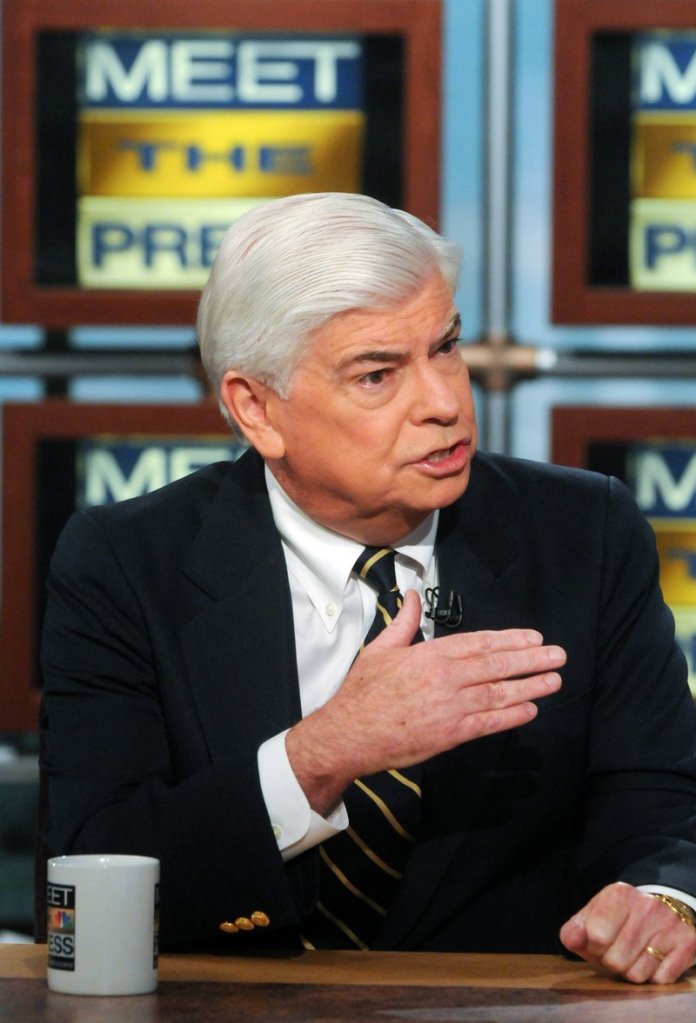WASHINGTON – With no bipartisan deal on how to rein in Wall Street, Democrats stepped up their efforts Sunday to splinter unified Republican opposition to their sweeping regulatory overhaul.
In a move that could attract the support of at least two Republicans, including Olympia Snowe of Maine, Democratic Sen. Christopher Dodd, chairman of the Senate Banking Committee, agreed to toughen his sweeping bill with rules on derivatives despite objections from the Obama administration, according to a Democratic official familiar with the negotiations.
Derivatives are the complex securities blamed for helping precipitate the 2008 Wall Street crisis.
The restrictions adopted by Dodd were written and approved by the Senate Agriculture Committee last week. They include a requirement that banks spin off their derivatives businesses into subsidiaries with separate sources of capital. Banks fiercely opposed the provision. The Obama administration has called for banks to end trading in speculative securities, but not to jettison operations that create derivatives markets for clients.
The Agriculture Committee language had the support of Republican Sens. Charles Grassley of Iowa as well as Snowe. It was sponsored by committee chairwoman Blanche Lincoln, D-Ark., who pressed Dodd to incorporate it into the broader bill.
It was unclear Sunday night whether adding the derivatives restrictions would be enough for Snowe and Grassley to join Democrats and vote to permit the start of debate on the larger Wall Street bill.
Snowe could not be reached for comment.
Senate Republican Leader Mitch McConnell on Friday blocked Democrats’ efforts to bring the bill up for debate, setting up a vote today that will require 60 votes to move ahead. McConnell said Sunday that if Republicans did not strike a deal with Dodd on several aspects of the bill, all 41 Republican senators would vote to delay debate.
Dodd and Sen. Richard Shelby, the top Republican on the banking committee, professed to be close to a deal Sunday during a joint appearance on NBC’s “Meet the Press.” But the two lawmakers did not hold a negotiating session Sunday.
The legislation, the most sweeping effort to rein in financial institutions since the Great Depression, is approaching its end game, and Republicans and Democrats predict it can pass with bipartisan support.
But for now, Republicans are using what leverage they have in hopes of putting a bigger GOP imprint on the bill or removing Democratic provisions they perceive as government overreach.
Democrats said they were out of patience.
“Are we going to start the debate or are we going to shut it down and continue negotiating, negotiating, negotiating?” Sen. Sherrod Brown, D-Ohio, said on ABC’s “This Week.”
The derivatives provisions would require most derivatives to go through a new network of clearinghouses and be traded on regulated exchanges. Lincoln’s bill provides some exemptions for firms that use derivatives for commercial purposes to hedge against market fluctuations. It also exempts derivatives linked to foreign exchange rates.
Derivatives are financial products such as corn futures or stock options whose worth depends on the values of underlying investments. Companies use them to hedge against risks, but they have also been vehicles for speculation and helped trigger the financial crisis when the underlying investments — mortgage-backed securities, for example — plunged in value.
The overarching Senate bill — and a similar bill passed by the House — would create a mechanism for liquidating large firms, set up a council to detect systemwide financial threats, and establish a consumer protection agency to police lending. The legislation also would require derivatives to be traded in open exchanges.
Even if Democrats are unable to proceed to debate after today’s vote, Senate Majority Leader Harry Reid intends to keep pressure on Republicans. The political environment favors Democrats. Polls show a public desire to regulate financial institutions, and a recent fraud lawsuit against Goldman Sachs has created a desire by several Republicans not to be seen as obstructing Wall Street legislation.
“If you listen carefully to the tone in Washington, just sort of the last couple of days, I think there has been a substantial shift,” Treasury Secretary Timothy Geithner said on CNN’s “Fareed Zakaria GPS” program Sunday. “And I think really on balance there are a very substantial number of Republicans who want to be for a strong set of reforms.”
Send questions/comments to the editors.



Success. Please wait for the page to reload. If the page does not reload within 5 seconds, please refresh the page.
Enter your email and password to access comments.
Hi, to comment on stories you must . This profile is in addition to your subscription and website login.
Already have a commenting profile? .
Invalid username/password.
Please check your email to confirm and complete your registration.
Only subscribers are eligible to post comments. Please subscribe or login first for digital access. Here’s why.
Use the form below to reset your password. When you've submitted your account email, we will send an email with a reset code.